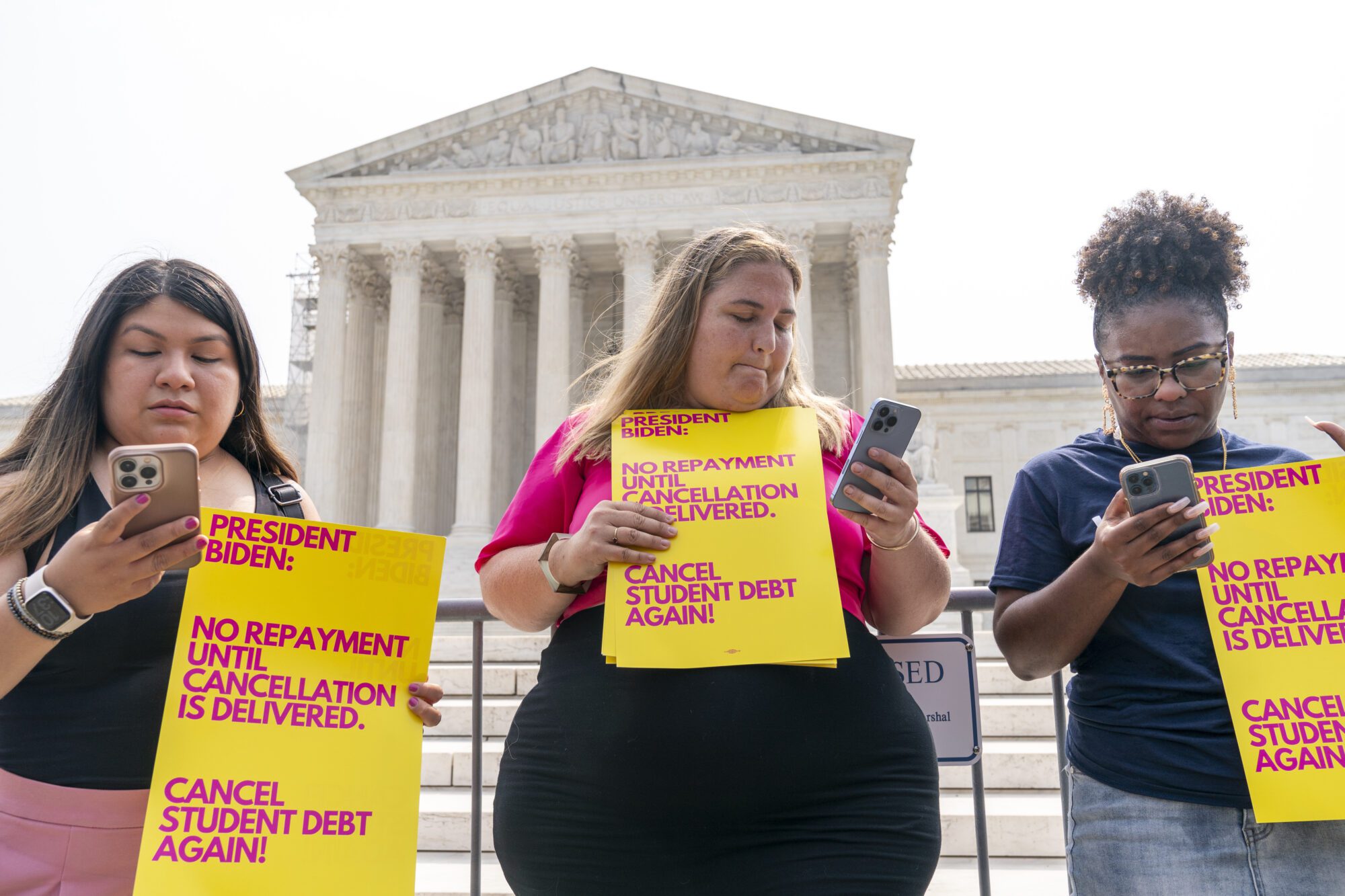
Protesters with the group, "We The 45 Million," including Melissa Byrne, center, react as they read the Supreme Court decision on their phones to President Joe Biden's student loan cancellation program, outside the Supreme Court, Friday, June 30, 2023, in Washington. A sharply divided Supreme Court has ruled that the Biden administration overstepped its authority in trying to cancel or reduce student loans for millions of Americans. Conservative justices were in the majority in Friday’s 6-3 decision that effectively killed the $400 billion plan that President Joe Biden announced last year. (AP Photo/Jacquelyn Martin)
President Biden has repeatedly promised to cancel student loan debt, yet no Congressional authority exists to allow him to keep that promise, the U.S. Supreme Court ruled on Friday.
On Friday, the U.S. Supreme Court handed down the long-awaited ruling on whether President Joe Biden’s plan to cancel nearly $400 billion in student loan debt was within the scope of authority for the Executive Branch.
Biden’s plan was a promise he repeatedly made while campaigning for the White House in 2020. After the plan to cancel up to $20,000 per borrower was announced last year, six states – Arkansas, Iowa, Kansas, Missouri, Nebraska, and South Carolina – challenged the President’s plan.
In a 6-3 decision, the Court ruled that the Biden Administration’s use of the 2003 Higher Education Relief Opportunities for Students Act, or HEROES Act, provided no authorization for the student loan debt forgiveness plan when the Court examined the effort “using the ordinary tools of statutory interpretation – let alone ‘clear congressional authorization’ for such a program.” No Congressional authorization was given.
Chief Justice John Roberts, delivering the majority opinion for the Court, wrote that precedent “requires that Congress speak clearly before a department secretary can unilaterally alter large sections of the American economy.” Roberts went on to say that one branch of government was “arrogating to itself power belonging to another.”
“But it is the Executive seizing the power of the Legislature,” Roberts wrote.
Roberts was joined in the majority by Justices Clarence Thomas, Samuel Alito, Amy Coney Barrett, Brett Kavanaugh and Neil Grosuch.
Justice Sonia Sotomayor, Elena Kagan and Ketanji Jackson dissented.
Kagan, writing in dissent, noted that “Congress did not know COVID was coming; and maybe it wasn’t even thinking about pandemics generally. But that is immaterial, because Congress delegated broadly, for all national emergencies.” She noted that the President had declared a national emergency and the eligible borrowers fall within the “affected individuals” as required under the HEROES Act.
Kagan added that the Biden Administration had deemed the forgiveness “relief ‘necessary to ensure’ that the pandemic did not put low- and middle-income borrowers ‘in a worse position’ to repay their loans.
The decision means some 43 million Americans will resume making payments in the months ahead after years of having the payments paused during COVID-19 pandemic.
You can read the full opinion on the Court here.











